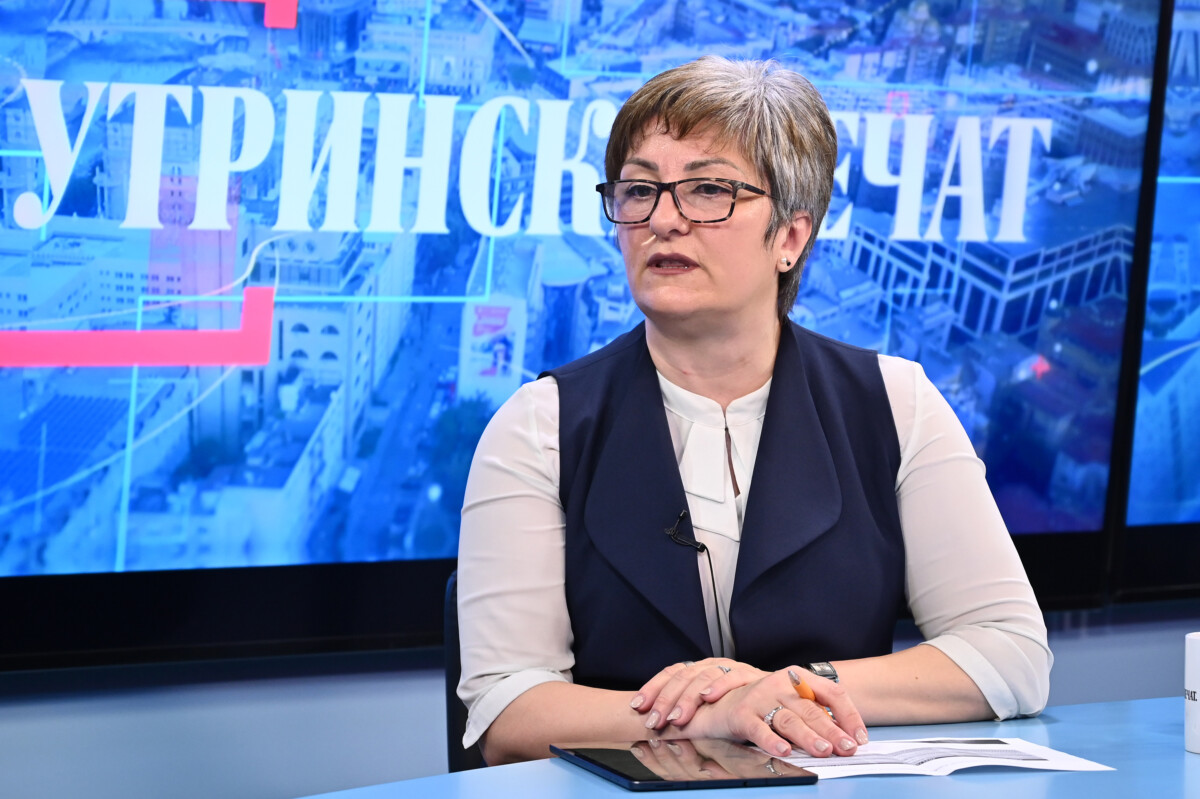BOJCEVA: CITIZENS CAN SUBMIT VERBAL REQUESTS TO THE INSTITUTIONS TO OBTAIN PUBLIC INFORMATION

“Institutional recognition of the Agency for the Protection of the Right to Free Access to Public Information is a protector of the right to free access to public information. The basic determination according to which the Agency behaves in relations with citizens and the media is guided by continuous implementation, promotion, and protection of the right to free access to public information in the direction of increasing the transparency and accountability of institutions and facilitating access to public information, emphasized the director of the Agency, Plamenka Bojcheva, in a guest appearance on the Morning Press show on Slobodna TV.
“Free access to public information is one of the basic human rights guaranteed by several international documents, as well as by the Constitution of the Republic of North Macedonia. The agency’s basic competence is dealing with appeals submitted by both citizens and legal entities. In the past period, i.e., in 2022, there was a significant decrease in the number of appeals submitted to the Agency until March 31, as noted in the Report that we submitted. In 2022, 343 appeals were filed, which represents a significant benefit for the work of the Agency in terms of the trainings, the exchange of information with the employees of the institutions that should provide public information, and the quality of the work of the competent employees. In other words, 7300 requests were submitted to the institutions, while the Agency received only 343 appeals against the institutions from which they requested information.
Furthermore, the agency works to ensure harmonization of the right to receive public information with the right to privacy so that the application of these rights does not come into conflict and damage is done.
“Information on the allocation of government funding, the state of the environment, or any other topic that is considered public can be requested by anybody by submitting a formal request to the relevant authorities. At the same time, we know that the right to privacy is guaranteed by the Constitution and the law. Moreover, there are five exceptions foreseen in the law on free access, which include the protection of personal data and disclosure that could lead to a violation of this right. Therefore, the information holder must perform a harm test to see whether the public interest is more important than the private interest. As an Agency, we had a case two years ago when we assessed that the Government should publish the names of the persons they hired under a work contract, i.e. we assessed that the public interest was more important,” stated Bojcheva.
To continue, the silence of the institutions is a common practice that changes from year to year as a result of the Agency’s efforts to help the information holders to meet the demands of the petitioners.
“Silence of the administration means that the institutions don’t take any action when they receive a Request for public information. The citizen, then, has the right to appeal to the Agency, and in very few and rare cases, the appeal is rejected. If there is no basis for accepting the appeal, we reject it and the applicant has the right to file a lawsuit before the Administrative Court. We stand for proactive transparency of the institutions that provide the information. There is a certain practice and behavior among a smaller number of employees from the institutions that consider that too much transparency is not beneficial. However, there is no legal basis for such behavior, as it is more of a result of their subjective opinion and values that they are purportedly protecting the institution by not sharing the information”, said Bojcheva.
To this end, the Agency undertakes activities for the education of the information holders about the right of free access to the information they hold and cooperates with the holders of information to enhance the realization of the right of access to public information.
“The agency regularly conducts trainings for officials from the bodies and institutions that hold information through a digital platform, because we do not have enough funds for direct contact with a large number of people. In the Republic of North Macedonia, we cooperate with civic groups and the foreign community to obtain funding and assistance for communication with citizens on the ground so that public information is as close as possible. We also have an excellent communication and cooperation with officials from numerous institutions-holders of information. It often happens that after submitting the appeal to the Agency, which we forward to the holder of the information, the holder immediately acts in the interest of the applicant of the request. We do not have the authority pursuant to the law to conduct proceedings against the heads of the institutions, that is, we conduct proceedings only against the officials. As an Agency, we have come to the realization that the officials are not the ones who limit the provision of public information, but the managers”, said Bojcheva.
Citizens can call the Agency to get information from a competent institution.
“The verbal request for obtaining information is not sufficiently known among citizens/information requesters, so it is rarely used by them, but they do have an opportunity to use it. Due to the fact that it is rarely used, the officials do not have enough experience with this method and mostly prefer submitting a request in writing. The deadline is shorter for the verbal request and denotes 5 days for a response, while there are 20 days response time for the written request. The citizens will receive an answer to an appeal in 40 days if they utilize the written model of submitting a request. The deadline for receiving the information or completing an appeal in EU countries is 15 days and we should strive to make it shorter,” emphasized Bojcheva.
You can watch the entire video interview of director Bojcheva at the following link: https://www.youtube.com/watch?v=w1o1bY5ar5Q&t=20s

